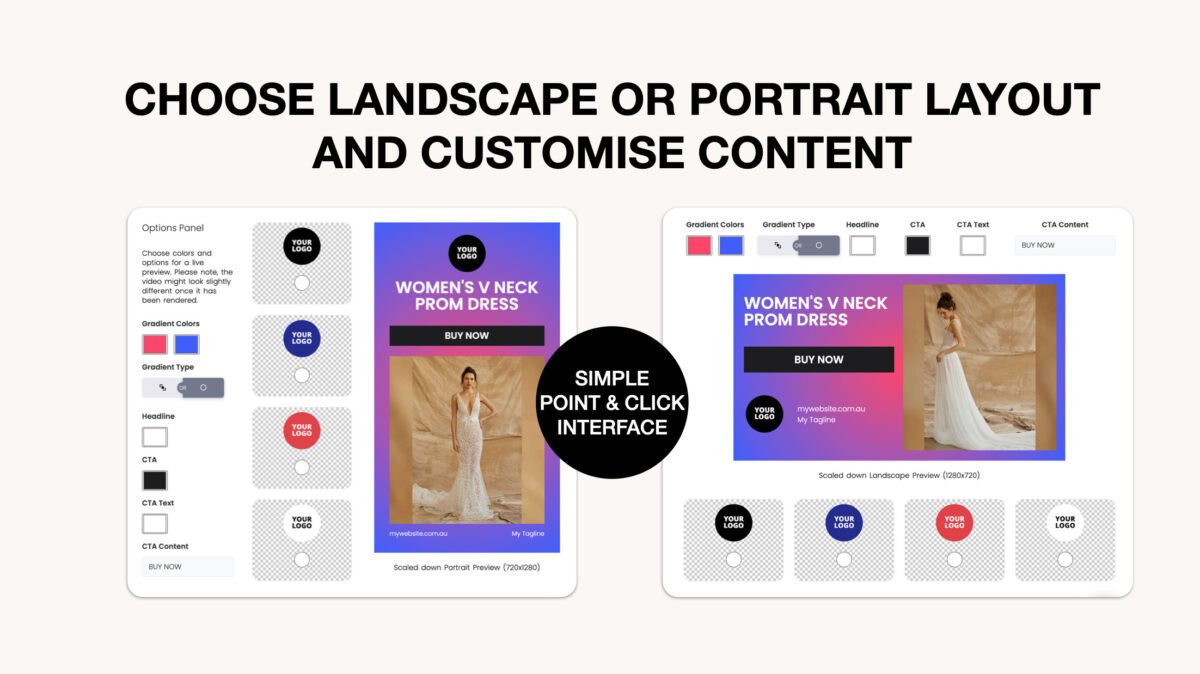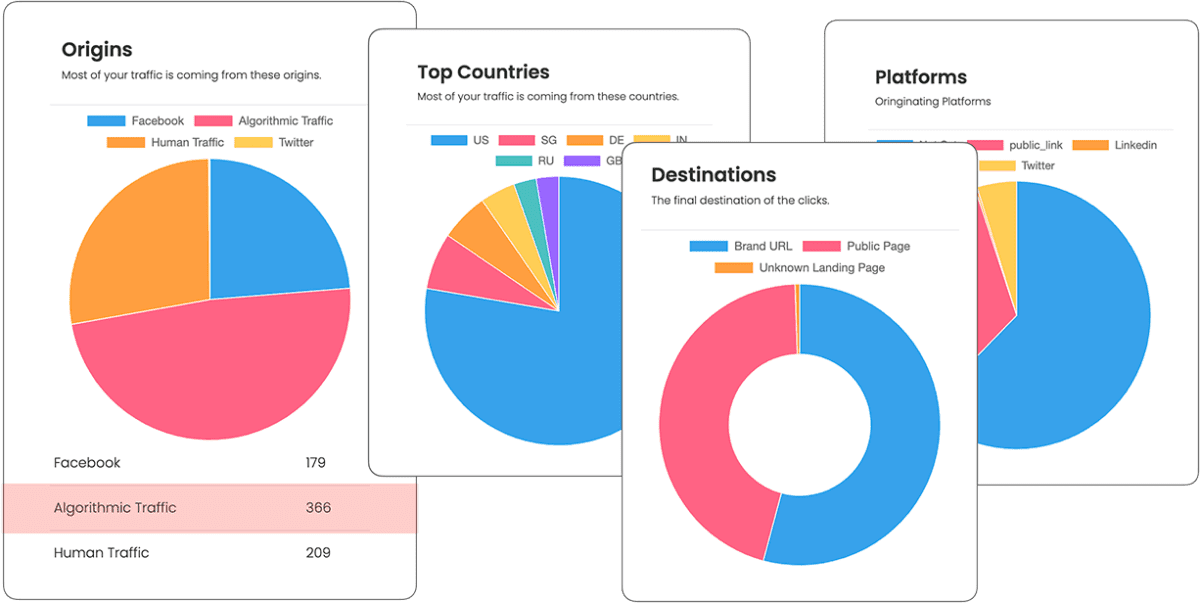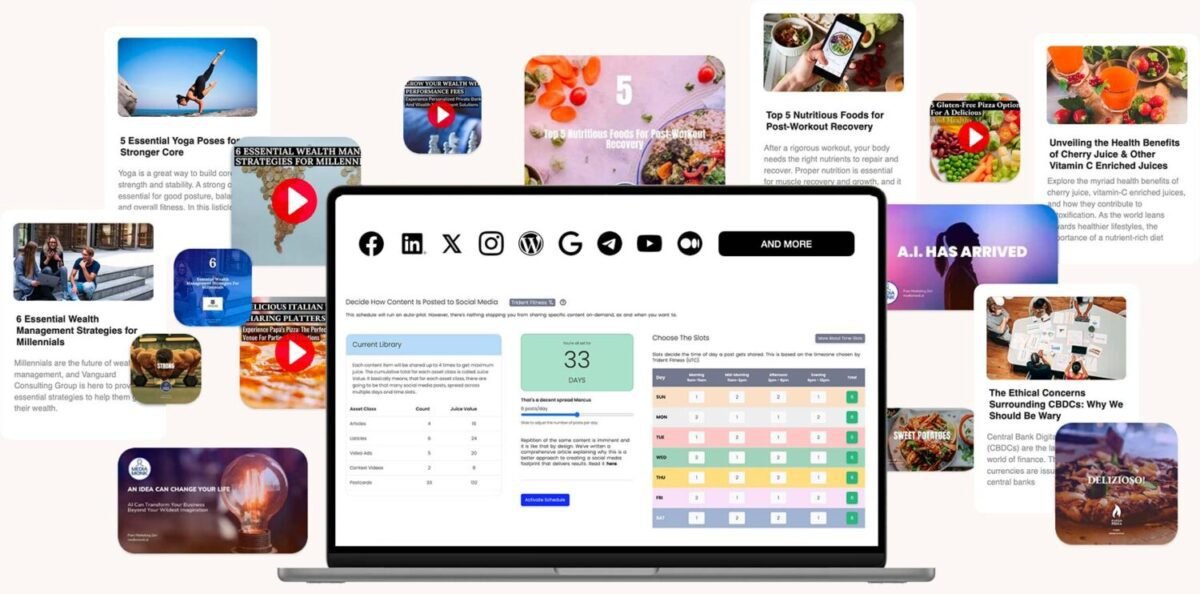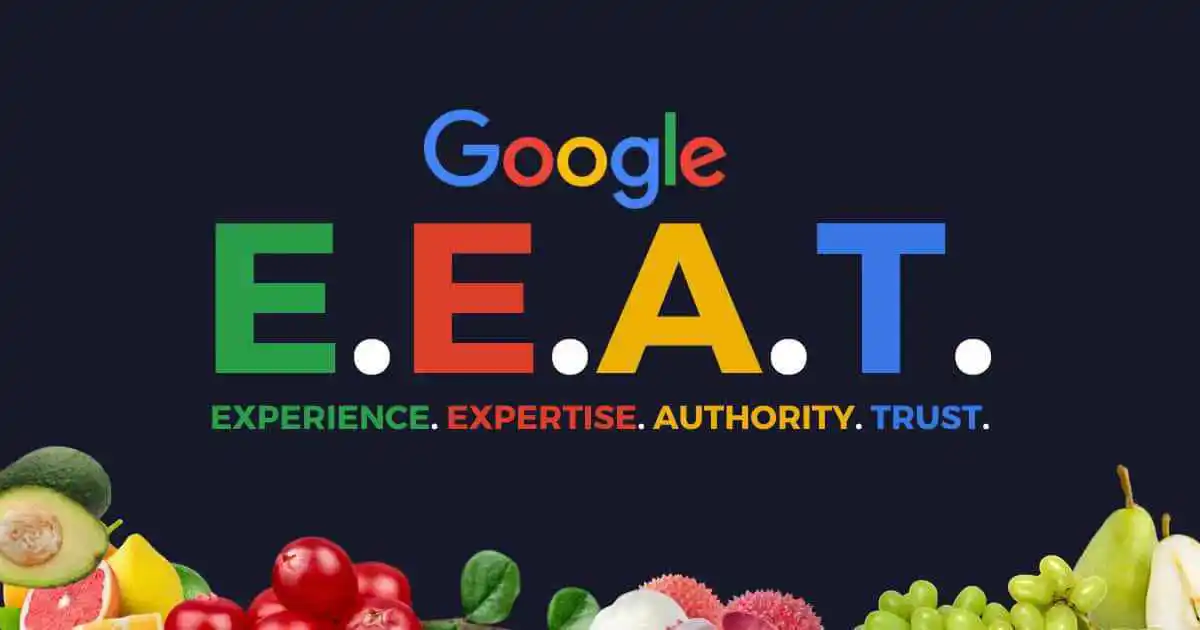
Table of Contents
Are you looking to elevate your business’s online presence and drive revenue through effective content marketing? Crafting a successful content marketing campaign requires careful planning, strategic promotion, and the use of cutting-edge tools and technologies. In this comprehensive guide, we will walk you through the essential steps to create and execute a successful content marketing campaign.
Content Marketing Guide: Understanding the Key Elements of a Successful Content Marketing Campaign
When crafting a successful content marketing campaign, it’s essential to start by defining your target audience. Understanding who you are trying to reach will help you tailor your content to meet their specific needs and interests. Conduct thorough research to gather demographic and psychographic information about your audience, and use this data to create buyer personas that represent your ideal customers.
Another key element of a successful content marketing campaign is identifying your unique selling propositions (USPs). What sets your brand apart from competitors? What value do you offer that others don’t? Clearly defining your USPs will help you create compelling and differentiated content that resonates with your target audience and sets you apart in the market.
Furthermore, it’s crucial to have a deep understanding of your industry and market landscape. Stay updated on industry trends, competitor activities, and consumer behaviors to identify opportunities and challenges that can inform your content strategy. By staying informed and proactive, you can ensure that your content remains relevant and impactful in a constantly evolving market.
Developing a Strategic Plan for Launching Marketing Campaigns
Developing a strategic plan for launching marketing campaigns is crucial for achieving success in content marketing. It involves setting clear objectives that align with your overall marketing goals and target audience. By defining key performance indicators (KPIs), you can measure the effectiveness of your campaign and make necessary adjustments to optimize its performance. Additionally, establishing a content calendar will help you stay organized and ensure a cohesive and consistent message across all your marketing channels.
When creating a strategic plan, it’s important to consider the various stages of the buyer’s journey and tailor your content to address the specific needs and pain points of your target audience. By understanding the buyer’s journey, you can create content that resonates with your audience at each stage, from awareness to consideration to decision-making. This targeted approach will increase the relevance and effectiveness of your marketing campaigns, ultimately driving better results.
Furthermore, a strategic plan should also include a comprehensive analysis of your competition and industry trends. By understanding what your competitors are doing and staying updated on industry trends, you can identify opportunities to differentiate your content and stand out in the crowded digital landscape. This proactive approach will help you position your marketing campaigns for success and stay ahead of the curve in your content marketing efforts.
Utilizing Effective Content Promotion Strategies
After creating your content, it’s important to promote it effectively in order to reach your target audience. One effective strategy is social media marketing, where you can share your content across various platforms to increase visibility and engagement. Utilizing email campaigns is another powerful promotion strategy, as it allows you to directly reach out to your audience and provide them with valuable content. Additionally, forming partnerships with influencers in your industry can help amplify the reach and impact of your content, as their endorsement can lend credibility and trust to your campaign.

By implementing these content promotion strategies, you can maximize the visibility and impact of your marketing campaign. Social media marketing, email campaigns, and influencer partnerships all play a crucial role in reaching and engaging your target audience. It’s important to tailor your promotion efforts to the preferences and habits of your audience, ensuring that your content is being effectively promoted and distributed to the right channels.
Ultimately, effective content promotion strategies are essential for the success of your content marketing campaign. By leveraging social media, email, and influencer partnerships, you can ensure that your content reaches a wider audience and resonates with them. These strategies will help you build brand awareness, drive traffic, and ultimately achieve your marketing goals.
Measuring Success Factors for Your Content Campaign
Measuring the success of your content marketing campaign is crucial for ensuring that your efforts are yielding the desired results. By tracking key metrics such as website traffic, engagement rates, conversion rates, and social media interactions, you can gain valuable insights into the effectiveness of your campaign. Utilizing analytics tools like Google Analytics, social media analytics platforms, and email marketing software can provide you with the data needed to make informed decisions about the direction of your marketing efforts.

By analyzing the performance of your content marketing campaign, you can identify areas for improvement and optimization. For example, if you notice that certain types of content are generating higher levels of engagement and conversions, you can allocate more resources towards creating similar content in the future. Conversely, if certain marketing channels or tactics are underperforming, you can adjust your strategies accordingly to maximize your ROI.
Ultimately, measuring the success factors of your content marketing campaign allows you to refine your approach and make data-driven decisions for future improvements. By continuously monitoring and analyzing the performance of your marketing efforts, you can adapt to changing consumer behaviors and market trends, ultimately increasing the effectiveness and impact of your content marketing campaigns.
Implementing AI-Driven Tools for Content Creation and Automation
Advancements in AI technology have revolutionized content creation and automation. These tools and platforms leverage machine learning and natural language processing to analyze data, identify trends, and generate personalized content at scale. By implementing AI-driven tools for content creation, marketers can streamline their processes, reduce manual efforts, and improve the overall quality and relevance of their content. This not only saves time and resources but also enables marketers to deliver more targeted and engaging content to their audience.

Furthermore, AI-driven tools can help marketers personalize their marketing efforts by analyzing customer data and behavior to create tailored content and recommendations. This level of personalization can significantly improve the effectiveness of marketing campaigns, leading to higher engagement, conversion rates, and overall ROI. Additionally, AI automation can optimize campaign execution by identifying the best times to publish content, targeting the right audience segments, and even optimizing ad spend for maximum impact.
Overall, implementing AI-driven tools for content creation and automation is essential for crafting a successful content marketing campaign. By leveraging the power of AI technology, marketers can enhance their content strategy, improve efficiency, and deliver more personalized and targeted campaigns that resonate with their audience. As AI continues to evolve, it will play an increasingly crucial role in content marketing, enabling marketers to stay ahead of the competition and achieve greater success in their campaigns.
FAQs on Crafting a Successful Content Marketing Campaign
What are the key components of a successful content marketing campaign?
Creating a successful content marketing campaign involves several key components. Firstly, it’s essential to define clear and measurable goals for the campaign, such as increasing brand awareness, driving website traffic, or generating leads. Next, understanding the target audience and their needs is crucial for crafting relevant and engaging content. Additionally, conducting thorough keyword research and optimizing content for search engines can improve visibility and reach. Finally, leveraging various content formats, such as blog posts, videos, infographics, and podcasts, can cater to different audience preferences and maximize impact.
How can businesses effectively plan and launch a content marketing campaign?
Effective planning and launch of a content marketing campaign involve several steps. Firstly, conducting a comprehensive content audit to assess existing assets and identify content gaps can provide insights for campaign planning. Next, creating a content calendar with a strategic timeline for content creation, publication, and promotion can ensure consistency and alignment with business objectives. Additionally, leveraging social media, email marketing, and influencer partnerships for campaign promotion can extend reach and engagement. Finally, monitoring and analyzing campaign performance using analytics tools can provide valuable data for optimizing future campaigns.
What role does AI-driven content creation play in a successful marketing campaign?
AI-driven content creation plays a significant role in enhancing the efficiency and effectiveness of a marketing campaign. By leveraging AI technology, marketers can analyze vast amounts of data to identify content trends, preferences, and audience behavior. This enables the creation of personalized and targeted content that resonates with the audience, leading to higher engagement and conversion rates. Additionally, AI automation can optimize content distribution, ad targeting, and campaign execution, ensuring maximum impact and efficiency.
How can businesses ensure the relevance and quality of their content in a marketing campaign?
Ensuring the relevance and quality of content in a marketing campaign involves several strategies. Firstly, conducting thorough audience research and persona development can provide insights into the needs, preferences, and pain points of the target audience. Next, leveraging AI-driven tools for content creation and automation can analyze data to generate personalized and relevant content at scale. Additionally, implementing content review processes and quality checks can maintain consistency and accuracy in content delivery. Finally, seeking feedback from the audience and monitoring content performance can help refine and optimize content for relevance and quality.
How can businesses personalize their marketing efforts using AI technology?
Personalizing marketing efforts using AI technology involves leveraging customer data and behavior to create tailored content and recommendations. By analyzing demographic, behavioral, and transactional data, businesses can segment their audience and deliver personalized content that addresses specific needs and interests. Additionally, AI-driven tools can automate the process of content personalization by dynamically adjusting content based on user interactions and preferences, ensuring a seamless and personalized experience for the audience.
What are the benefits of leveraging AI technology in content marketing campaigns?
Leveraging AI technology in content marketing campaigns offers several benefits. Firstly, it enables marketers to streamline content creation processes, reduce manual efforts, and improve overall efficiency. Additionally, AI-driven tools can analyze data to identify content trends and audience preferences, leading to the creation of more targeted and engaging content. Furthermore, AI automation can optimize campaign execution by identifying the best times to publish content, targeting the right audience segments, and maximizing ad spend for greater impact, ultimately enhancing the effectiveness and ROI of marketing campaigns.
How can businesses stay ahead of the competition in content marketing using AI technology?
Staying ahead of the competition in content marketing involves embracing AI technology to enhance content strategy and delivery. By leveraging AI-driven tools, businesses can gain insights into content trends, audience behavior, and competitive landscape, enabling them to create differentiated and impactful content. Additionally, AI technology can automate repetitive tasks, allowing marketers to focus on strategic initiatives and creative ideation, ultimately setting them apart from competitors. Furthermore, continuous adaptation and optimization of content strategies based on AI insights can ensure relevance and effectiveness in a dynamic market environment.
What are the future prospects of AI technology in content marketing?
The future prospects of AI technology in content marketing are promising. As AI continues to evolve, it will play an increasingly crucial role in content creation, personalization, and campaign optimization. The advancements in machine learning, natural language processing, and predictive analytics will enable marketers to gain deeper insights into audience behavior, preferences, and intent, leading to the creation of hyper-targeted and impactful content. Additionally, AI automation will continue to revolutionize content distribution, ad targeting, and campaign optimization, driving greater efficiency and effectiveness in content marketing initiatives.
The 15 Step Content Marketing Guide

Crafting a successful content marketing campaign requires a strategic approach, attention to detail, and a deep understanding of your audience. Here is a comprehensive step-by-step guide, leveraging Media Monk’s innovative platform to ensure your campaign not only reaches but resonates with your target demographic.
- Define Your Goals: Start by clearly defining what you want to achieve with your content marketing campaign. Whether it’s increasing brand awareness, generating leads, or driving sales, your goals will shape your strategy.
- Understand Your Audience: Use Media Monk’s audience targeting profiles to gain insights into your audience’s preferences, pain points, and behaviors. This knowledge will guide your content creation.
- Conduct Keyword Research: Utilize Media Monk’s AI to identify SEO-rich keywords that align with your content goals and audience search habits. This ensures your content is discoverable and relevant.
- Generate Content Ideas: Leverage Media Monk’s content automation tool to produce hundreds of unique content ideas. This will help keep your campaign fresh and engaging over time.
- Plan Your Content Calendar: Utilize Media Monk’s content planner to schedule your content production and distribution. This helps maintain a consistent content flow and maximizes engagement opportunities.
- Create Diverse Content Types: Use Media Monk to craft a variety of content types, from detailed articles and engaging listicles to informative videos and captivating postcards, catering to different audience preferences.
- Optimize for SEO: Ensure each piece of content is SEO-enriched with the right keywords, meta descriptions, and tags, using Media Monk’s AI-driven optimization tools.
- Automate Content Distribution: Schedule and automate the distribution of your content across all connected social media channels with Media Monk, ensuring a steady stream of content to your audience.
- Engage and Interact: Monitor the engagement on your published content and interact with your audience to build a community around your brand.
- Repurpose Content: Maximize the value of your content by repurposing it into different formats with Media Monk, such as turning blog posts into videos or infographics into postcards.
- Monitor and Analyze Performance: Use Media Monk’s analytics tools to track the performance of your content across different platforms. Analyze what works and refine your strategy accordingly.
- Iterate and Optimize: Based on performance data, continuously iterate and optimize your content and strategy to better meet the needs of your audience and achieve your marketing goals.
- Leverage User-Generated Content: Encourage your audience to contribute content or share their experiences with your brand. This can amplify your reach and authenticity.
- Collaborate with Influencers: Partner with influencers who resonate with your target audience to extend your campaign’s reach and credibility.
- Review and Refine Your Goals: Regularly review your campaign goals against your achievements. Adjust your objectives as your brand grows and the market evolves.
By following these steps and leveraging Media Monk’s comprehensive suite of content marketing tools, marketers can execute a successful campaign that not only reaches but profoundly engages their target audience, driving tangible results for their brand.


